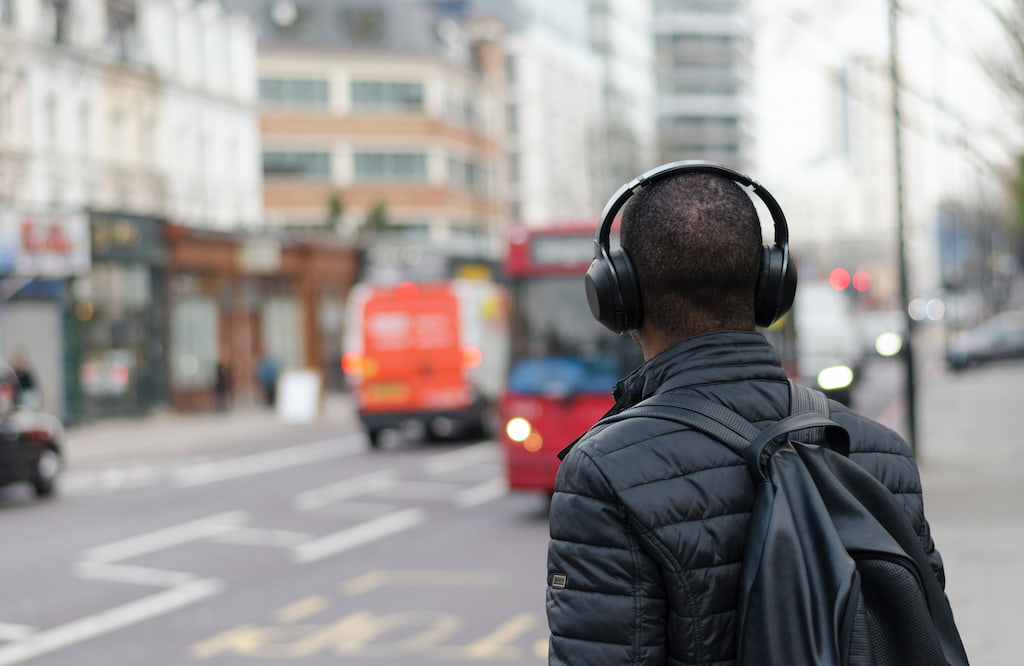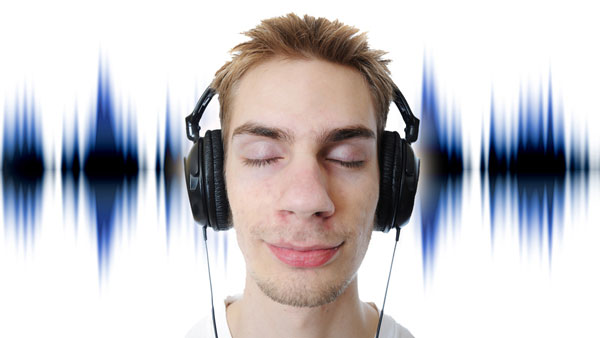How music affects us
How music affects us
How Music Affects Our Brain
Scientists are still trying to figure out how music affects our brain and why, just like any other art, we all experience it differently. But new discoveries in understanding the physical effect of music on the human brain are made all the time. It has been revealed that music can modify the brain structure, affect the taste of beer, and make men more attractive; it also turns out that the upbeat Beatles and the depressive Nortt are equally as good at making us feel better. In this ITMO.NEWS article, find out what scientists have learned about our relationship with music.
Love it or hate it
Have you ever met someone who doesn’t care for music at all? Someone who can spend their entire life without ever listening to anything? These people exist, and they make up approximately five to seven percent of the planet’s population. To find out how the brains of those who don’t care for music work, scientists from McGill University (Canada) have scanned the brain activity of 45 healthy test subjects while the latter listened to music; some of them were these “anti-melomaniacs”. It turns out that when these people listen to music, no connection is formed in their brain between the region responsible for processing sound and the brain’s reward center. At the same time, other stimulating activities, such as winning in games of chance, still causes them to experience pleasure.
This research, explain the authors, will help us better understand why people enjoy music and may also be useful for medical research. For instance, it can give us insight into the causes of neurological disorders that dampen people’s feelings of reward or motivation: depression, apathy, unfounded and harmful addictions.
Another study, conducted by scientists from University of Helsinki (Finland), Aarhus University (Denmark) and University of Bari (Italy), has proven that love of music is determined by genetics and depends on the function of the neurotransmitter dopamine. It helps humans anticipate pleasure, remember it and strive for it despite discomfort. Scientists noted that, having listened to music, participants of their experiment experienced functional changes in their dopamine receptors, which improved their mood. The researchers noted that this is the first study that has shown that music affects the brain’s physical structure.

Credit:manmademusic.com
Fun or sad, doesn’t matter
All sorts of music can have a positive effect on the brain. Researchers from UK and Finland have discovered that listening to sad and gloomy music is pleasing to people and improves their mood. Moreover, they begin to feel more comfortable, as the music makes them contemplate their experiences. The scientists have pointed out the paradox: people tend to experience a strange satisfaction after they’ve emotionally reacted to tragic art, be it music, cinema, paintings or others. Japanese psychologists have proposed that the explanation for this phenomenon is due to how people associate sadness with romantic feelings. Besides that, sad music is not seen as a threat to the organism, but as a way to relieve psychological tension and “switch” to an external source of sadness rather than an internal one.
Still, listening to upbeat, fun music has a positive effect on one’s creativity and teamwork abilities – the so-called soft skills. Researchers from the Netherlands have conducted creativity tests in several groups of people. One group listened to positive music, another – to sad music, the third – to calming music and the final – to tense music. A control group completed their test in silence. It turns out that the best results – meaning the more creative and yet practical solutions to the tasks – were shown by those who listened to positive music.
A peculiar study from the University of Cornwall has shown that listening to heavy metal music makes people less sociable and lowers their willingness to do things for the common good. The researchers had several groups of test subjects play a game. In the course of the game, players could “donate” their personal scores to improve their team’s score. Some of the teams would listen to such songs as The Beatles’ “Yellow Submarine”, Katrina and the Waves’ “Walking on Sunshine” and the like. Others would be listening to heavy metal and similar genres. In the end, players from the first category were more eager to share their scores than those who listened to dark, gloomy music.
It matters why you listen
There’s a reason why they say that one’s mental approach plays an important role in controlling emotions and working productively. Researchers from Aalto University and University of Jyväskylä (Finland), and Aarhus University (Denmark) have found that the intent behind listening to music also has an effect on people’s emotional states.
The scientists performed brain scans on test subjects while those listened to sad, aggressive and “dark” music. A majority of male participants noted in their questionnaires that they listen to such music to express their negative emotions, while a majority of female participants tended to do that to distract themselves from these same emotions. The results of MRI scans showed that, for most women, activity increased in the area of their brain responsible for emotional control, while the opposite happened in most male participants’ brains. Usually, such drop in brain activity is correlated with the inability to switch between emotional states, which leads to depression and similar ailments.

Credit: rockcult.ru
Music as a painkiller
Listening to one’s favorite music can reduce pain. Two medical institutes from the US tested music therapy on patients who had undergone spinal surgery. Participants were asked to evaluate their pain level on a scale. Those who had undergone music therapy began to experience less pain than others.
Loud is better for business
Who would’ve thought that loud music makes people drink more alcohol in less time? To prove that, a group of French scientists went on a bar tour. With permission from bar owners, they experimented with the volume of music being played at the venues and observed the patrons: how fast do they drink? How much do they order? The activities of 40 men aged 18 to 25 were tracked. Researchers have suggested that the changes in the speed and amounts of alcohol consumed at bars are prompted by the volume of music, as louder sounds get them more excited and willing to eat and drink. Moreover, overbearing sound prevents patrons from being able to converse with each other.
Music can also make your beer taste better! A curious experiment was conducted by the Brussels Beer Project company in collaboration with the British band Editors. More than 300 participants tasted the same brand of beer, but one group was unaware of the brand and didn’t listen to music, one knew the brand and the third knew the brand and also listened to the band’s music. The poll showed that the third group enjoyed it the most, showing that taste is dependent on sound. Researchers also intend to use their results to find out if music can motivate people to, for instance, eat healthier food.
Playing music makes you hotter
Charles Darwin himself noted that one of the possible reasons why music has always been a part of human culture is that it is a natural continuation of animal mating calls. Scientists from the University of Vienna decided to put that theory to the test and to see if men and women find each other more attractive if they’ve listened to music shortly before that.
The researchers, therefore, have suggested that for women, musical abilities and general creativity may be seen as partial compensation for deficiencies in physical appearance and fitness.
Kittens hate metal
Everybody hates that one neighbor who’s always playing loud, noisy music for days on end. But what about kittens?
A group of Portuguese researchers has decided to find out how cats feel about different musical genres. The animals were equipped with headphones and listened to classical, pop and metal music while being neutered under anesthesia. Their respiratory rate and pupillary diameter were measured to evaluate their calmness level. Just like people, cats relaxed while listening to classical music and became tense while listening to AC/DC’s hit song “Thunderstruck”.
How Music Affects Peoples Emotions
In today’s world so many things are constantly changing and so is music with it. 40 years ago, people didn’t even have cell phones and now in 2019 Companies like Apple have come out with their 10th iPhone that has face ID imbedded within it. Just like phones music has evolved so much over time, yet one thing has drastically changed is the emotions that some music will make you feel. For example, in the 1950’s people listened to people like Elvis which would make you happy when you listened to his music. Compared to now days where people listen to rappers like 21 Savage who produce rap that could make you happy, but it could also make you mad. This raises the question; how does music affect people’s emotions?
When people listen to music, they usually chose to listen to music that will put them in a specific mood. Which makes sense considering someone who is trying to get hyped up for a basketball game will listen to more positive up beat music, compared to if you just got dumped you would probably listen to sad music because that’s how you are feeling at the moment. What’s weird though is that some types of songs don’t only make people feel one emotion. In an article written by Suzanne Boothby and published on Healthline.com it says that while sad music can give you negative feelings or cause grief it can also bring you pleasure and comfort. What was most surprising was that when they created a poll to see what people felt, the majority of them said they felt positive emotions. This was a big deal because this now meant that people could try to lift themselves out of a bad mood by listening to sad music. The best part about this study was it prompted researchers to study other types of music which led them to find out that upbeat music could not just improve your mood it could improve your mood in less than two weeks after a breakup or loss. Also, in a press release, led by study author, Yuna Ferguson, happiness has been linked to better physical health and higher income. This just proves how much listening to upbeat positive music can impact your life.
Now let’s dive in to how music can be therapeutic. Now I’m sure when most of you hear the word therapeutic you think mental therapy and while music can be therapeutic for someone mentally it is also very helpful for people’s physical therapy. For instance, American Music Therapy Association (AMTA) stated that music can help people cope with pain when undergoing surgery. It can also help with enhancing memory. What’s crazy is that music can even be therapeutic for people with chronic conditions such as Parkinson’s disease and dementia. It can also help people with mental health struggles like depression or anxiety. It is just mind blowing how many things music can cure or at least help people get through.
In-conclusion, music plays a major role in our lives whether we can admit it or not. One thing that I have noticed over time is that even though not everybody has everything in common with one another, I personally think that we all can agree that we all like music. Because at the end of the day even if what your listening to isn’t your favorite song or genera it still might make you a happier person or it might help you overcome a injury or disease, or it might help you with the most important thing which is to just be yourself. After reading this try to personally challenge yourself and others to explore some of the genera’s we have covered and see what affect they have on you. Do they make you happier or do they make you a sadder person, maybe you will learn to like some of these genera’s that you have never listened to before?
Healing Power of Music: How Does Music Affect Our Mental Health?
Content
Music’s Impact On Our Mental Health
Music is a great part of our lives. Personally, I can’t even imagine a life without music because it brings me such joy and helps me communicate with myself in a totally different way. Let’s take a deeper look at how music positively impacts our mental health.
Let me start with the most known benefit of music: stress reduction. Research has shown that music has a positive impact on our autonomic nervous system, helping us manage stress and respond more constructively when in moments of stress. We know that there will be stressors present in our lives pretty much all the time. So, one thing we can do is try to understand these stressful situations so that we can learn to live with them rather than trying to eliminate them entirely. And this is where music can play a very important role. Listening to music can help us organize our thoughts and approach our problems with a balanced perspective. I find music very valuable because it’s often widely-accessible, making it easier to experience almost anywhere.
So many of us have had that moment when we put on our headphones and get lost in the music, alone with ourselves in a moment of reverie. But music can be a very powerful social tool as well, giving us many cues. For example, imagine that you’re invited to a social gathering. You enter the room full of people and begin to notice the music playing in the background. That music can give you an idea about the atmosphere even before we encounter people there. We can begin to understand whether this is a more dance-centered event, let’s say, or one wherein the music is meant to convey a vibe rather than be the focus. Going to a concert of our favorite singer and singing the same song together with thousands of people can be a very powerful feeling, right? Music can help us feel part of a community.
Additionally, music can help to motivate us. Many of us listen to music when we’re exercising and there’s a reason for that. Music can increase our performance and motivation in activities like training, running, etc. It can also help us use our time more efficiently. Maybe that means you say to yourself, “I’ll walk until the chorus,” or “I’ll row until the end of this song,” as a way to regulate your exercise using music.
Music impacts almost every part of our lives even including our quality of sleep. One study shows that a group of students who listened to classical music for 45 minutes before going to bed had better sleep quality compared to the group who didn’t listen to music.
How Do Different Types of Music Impact Our Mood?
Several studies claim that each type of music can potentially trigger different emotions. Calming melodies, for example, can have a soothing effect that works to lower blood pressure and slow the heart rate as we listen. On the other hand, “Grunge” music (a sub-category which is a combination of punk and heavy metal) can sometimes trigger feelings of hostility, sadness, and tension. And, as we’ve seen, classical music can work to calm us down and fill us with a sense of peace. It’s thought that the structure of the music, the sounds and melodies, can have an impact on our mind and body. Because calming or classical types of music can reduce anxiety, they can also help us balance our mood. How does music impact you? Take a moment to reflect on your own experiences to see what bubbles to the surface.
Most of the time, the type of music we gravitate toward is related to our current mood. Music can be a fantastic tool through which to process and express our emotions. Maybe you’ve experienced a moment in which you can’t put into words how you’re feeling, that words are just not enough. In such moments, music saves us. Remember the times you’ve said: “That’s exactly how I feel!” while listening to a song? Perhaps that song expresses how you’re feeling or reflects what you’ve been through. Consider someone who’s recently broken up with their partner, for example. Maybe they turn on some sad music to sit with those feelings of heartache. We might expect listening to break-up songs makes us feel sadder, but studies show the opposite. By listening to such songs, we remember that there are other people navigating similar feelings and we don’t feel so alone. In fact, this further demonstrates that music is more than just melodies. Music can help us feel better through creative expression and communication.
Now, let’s consider a different emotion through music: Happy songs… People often prefer listening to joyful and exciting music when they feel good because this increases their enjoyment. For example, imagine that you’re going on a vacation with your friends. You’ve finished all your work and you deserve that holiday. What’s the first thing that you turn to when you get in the car to head out on that much needed vacation? Of course, music! Because sometimes those melodies describe our mood better than we can. The good thing is, wherever we are, we can experience unity across time and space through music.
A Clinical Perspective: Music Therapy
We may feel moments of happiness and sadness from time to time, but there may also be periods where certain feelings stay with us for a long time. For example, in cases of anxiety and depression experts think that music therapy can be an important tool to help express and process feelings. Among the techniques used in music therapy there are activities like lyric analysis, improvising, listening to music, and writing a song. Let’s dive a bit deeper into these techniques…
In lyric analysis, a person can rewrite the lyrics or point to lines of the song they’re listening to that describe what they’re going through based on specific themes. In this way, there’s a kind of anchor people can use to begin to navigate their own experiences through music.
Musical improvisation allows people to have the chance to express their mood by playing musical instruments or making some sound freely with different tools. After doing so, a discussion with a therapist can explore what feelings, memories, or emotions cropped up through that process.
In the practice of active listening, a person first listens to some songs reflecting their mood and then transitions into more positive and calming music. The thinking behind this suggests that this shift into more positive or calming music can be useful as, if we stay with the same rhythm and type of music, we can feel stuck after a time. For this reason, detoxing from our challenging mood can open up space for a more constructive perspective and can make us feel better.
We know that there’s a connection between music and our mood. While our mood may determine the songs we listen to, the songs we listen to can also change our mood. Our aim is, of course, not to ignore our mood or force ourselves to feel good. First, we notice our mood, accept it as our current reality, and then we try to transition to a different state. It’s crucial to maintain affection and understanding for ourselves throughout navigating psychological triggers. Holding ourselves in a space of care is one of the biggest steps we can take on our healing journey.
Song-writing can also be a very healing activity. Maybe you take a look at one of your favorite songs, noticing its structure, how many verses, what the chorus sounds like and then mimic it using your own thoughts, feelings, and emotions for the lyrics. Sometimes this activity can feel more secure and less intimidating than talking about how we’re feeling. Writing lyrics can be a great way to process emotions but it can also be a wonderful way to share them as well, boosting our confidence as we engage with our audience.
As one of the most effective tools for psychologists is listening and talking, one of the most important instruments for musical therapists is creating room for emotions via music. Music can create artistic and economic opportunities for people to express who they are, to socialize, and to boost their self-esteem. A musical therapist aims to help people process their traumatic memories or intense feelings like grief, depression, or anxiety in a healthy way.
How Does Music Help Us Feel Better?
There are some special songs that just make us feel joyful. Do you recall such a song? A song that brightens your day, or one in which you get lost in the rhythm or the lyrics and you can’t help but think “How did they make such a beautiful song?”
Why do such songs make us feel more peaceful? Perhaps the most significant factor is that they trigger the reward center of our brain called the dopamine system, making you feel happy or excited. Your partner’s smell, the bright colors of a flower, getting a good night’s sleep, exercising, listening to music, or any situation that you associate with pleasure can all be examples of stimuli that activate the reward center of the brain.
In fact, while listening to a song, our brain starts to work in such a way that it can predict the next pattern in the melody. According to one theory, one of the reasons why we like listening to music is this desire or impulse to predict the next musical pattern. Our brain wants to predict future events based on the past and by attempting to do so, we reduce our perception of uncertainty and increase our feeling of being in control. Therefore, if we notice that we can guess the next musical pattern, this can create a rewarding feeling or a sense of security.
Playing an Instrument is Like Making a New Friend
Now, I would like to talk about my personal relationship with music. I’ve been playing piano for 15 years, since I was ten years old. As a student of the instrument, I took the piano exam twice and at the end of every year we’d have recitals together with other students. There are hundreds of things that playing an instrument has taught me but the most significant one I can tell you is that it’s given me a friend who will be with me all my life. Whenever I feel tired, or the need to take a break, or that I’m overwhelmed, I start playing piano and feel so renewed. I notice that I can focus on my job more clearly and have a higher sense of self-confidence. I feel less stressed out and have more energy to move throughout my day.
Apart from these feelings, playing an instrument can soften the experience of challenging emotions. It can reduce depressive thoughts, anger, tension, and it reminds us what really matters. When I first started playing piano, my instructors used to give me difficult songs to push me because they believed that I could do it. This has given me self-confidence and has also taught me to keep striving for things even as we make mistakes. As I’ve mentioned earlier, playing piano is another way to express my feelings. This non-verbal communication is so powerful and effective that sometimes even if I spend five minutes playing a song, I feel refreshed and like a new person. The connection between music and feeling good is that clear. You don’t have to be good at it to feel good while playing. My effort, the quality time I spare for myself, and the melodies produced are invaluable. If you haven’t tried playing an instrument and if you have such a chance, don’t miss it. Apart from that if you have children or kids around you, encouraging them to play an instrument can help set the foundation for this kind of beautiful self-expression.
So, where does music stand in your life? Which emotions make you feel like listening to music? Do your feelings and the types of music you listen to match? Or, are they different? Which types of music trigger which emotions for you? Do certain people and environments encourage you to listen to music? How does your body respond while listening to your favorite song? What does it tell you about you? You’ll have a chance to know yourself better while searching for the answers to these questions, I’m sure.
How Music Affects Us
It always happens to me, especially in the worst circumstances. I find these situations especially disturbing since I’ve talked about it with friends and considered how it impacts my life. I’m on the freeway with my stereo blasting, listening to an FM radio station blasting hard rock. I have my two hands on my steering wheel. I drive into a traffic jam. My anger level rises until I realize I’m listening to the wrong kind of music for my commute. Slowly coming to the understanding that my blood pressure is rising, and I’m about to make an inappropriate hand signal to a fellow motorist; I quickly change my music selection via a voice command through my phone connected to my GROM Audio car kit via Bluetooth and begin listening to some smooth jazz, reducing my blood pressure and encouraging a more positive attitude in myself.
Music has always affected me in this manner. It uplifts me, excites me, relaxes me, and much more. Music has and is a way for me to establish my mood and cue my attitude throughout the day. Many times it seems to me that the music I listen to is tapping into something deep and instinctual inside my mind and passing beyond into the primitive foundations of my soul. Music stirs the deep roots of my spirit and causes a tonal quake that reverberates deep from this central portion of myself all the way back to my most conscious being.
In her essay for PyschCentral.com, Malini Mohana describes this phenomena of music as “a type of perceptual illusion, much the same way in which a collage is perceived.” She explains that the brain creates a structure to understand the content of the music and develops meaning based on the nature of the sounds. The mind begins to predict how the music will continue and what emotional reaction should occur:
Music, though it appears to be similar to features of language, is more rooted in the primitive brain structures that are involved in motivation, reward and emotion. Whether it is the first familiar notes of The Beatles’ “Yellow Submarine,” or the beats preceding AC/DC’s “Back in Black,” the brain synchronizes neural oscillators with the pulse of the music (through cerebellum activation), and starts to predict when the next strong beat will occur. The response to ‘groove’ is mainly unconscious; it is processed first through the cerebellum and amygdala rather than the frontal lobes.
Music involves subtle violations of timing and, because we know through experience that music is not threatening, these violations are ultimately identified by the frontal lobes as a source of pleasure. The expectation builds anticipation, which, when met, results in the reward reaction.
I’m into many kinds of music but hard rock and metal are some of my favorites. I like the energy and excitation generated in me while I listen. I become motivated and immersed in the energy of the music’s tempo. Whether it is Metallica or Motorhead; I am alert, I am able to focus, and I’m emotionally volatile. The music gets me moving. It’s easier for me to get house chores finished and get me in the direction of the gym. I am physically amplified, along with vigorously engaged and involved.
The opposite can be said for slow and more melodic music. I use music to sleep at night. It drove my girlfriend crazy. Something about certain music distracts my mind and cues the right state of being for me to slip from consciousness and enter into a state of relaxed sleep. I listen to a lot of classical and ambient music before bed. I set the sleep timer to go off so my girlfriend, who goes to bed later than I do, isn’t disturbed by the music—she requires silence. Music by classical composers like JS Bach and Debussy set the right tone for sleep. Whether listening to melodic waves of “Air on the G String” by Bach or piano key strokes of “Clair de Lune” by Debussy, I am able to relinquish consciousness and become absorb in a state meditative sleep. Likewise, electronic phrases of Chris Russel’s Bloom album or Steven Brand’s Circular Scriptures album are able to help release tension and clear my mind. Feelings of respite and calm circulate throughout me.
In an essay written for The Synch Project, Marko Ahtisaari and Ketki Karanam wrote on relationship between music and emotion. One point they addressed in their essay was how music affects consumer purchasing behavior. They considered the possibility that though music may not dupe a person to buy something they don’t want, it may motivate them to consider something they would like to buy but are uncertain of acting on that desire. They cite a study of music played in a French restaurant to illustrate their point:
In a relatively unknown and somewhat concerning study for the free-willed person (5), playing characteristically French music in a wine shop increased sales for wines originating from France and or characteristically German music increased sales of wines from Germany. In another study (6), playing classical music versus pop music in a wine shop made people choose and purchase more expensive wines. Are people really this impressionable? Probably not. It is certain that hearing a certain type of music won’t make a person purchase something they absolutely do not want. This power that music can have in influencing our decisions may speak in part for the contextual nature of cognition. And the big role that music can have as part of your everyday life.
One way for me to make sense of this idea in my own life is to reflect back on how I use music to sleep. I listen to music that I find to be calming and relaxing. I’m in my bed with the lights off; my eyes are closed, and I am dug deep under the covers and into my mattress. I want to sleep and am looking for something to create and enhance this experience. I play classical music to entice me. It contributes to my state of being and helps me enter into a condition of deep restfulness.
Another example of how music influences my mood and behavior into states I both want and need is when I write. When I am writing I generally like to play music that is in tune with the topic or content that I am writing about. By creating a musical ambience—a sort of musical background—I am able to clearly illustrate and develop the mood and pacing of my composition.
I like to write fiction in my spare time. I write in a variety of genres and settings. I’ve written comedies, dramas, and many other kind of narratives. My stories have taken place in both the future, present, and past. One genre I have used whole or in part is horror. This genre requires a very specific mood and setting. If I am unable to create the right mood, the story fails to be effective from my point of view. This is why setting the right mood and tone is very important while I am in the process of drafting a story. I commonly use music to get me into the right mode of consciousness to begin drafting and revising. By playing moody, slow tempo atmospheric music I am able to write the type of material that creates tension and atmosphere for a horror story. The music I play becomes my personal soundtrack for my story, setting the tone for the events that occur and the behavior of the characters I create.
In many ways music may be perceived as an expression of emotion in itself. How many love ballads have been written over the last twenty years or more? How much heavy metal, rock, and rap songs have been composed expressing feelings of anger, frustration, and societal dissatisfaction?
Personally, I listen to many songs over the years just out of solidarity for my senses of loss or outrage. My breakups have been felt while listen to love songs and my anger has been mimicked in metal riffs. I have expressed my sorrow my creating playlist of Muddy Watters and Little Walter, as I have highlighted my rage with mixed tape collections of Anthrax and Slayer. I have encouraged the winter of lost love by seeking solace in Roy Orbison and Alicia Keys. I have reduced myself to meditative slumber with Schumann and Chopin.
In Matthew Kwong paper for Inquiries Journal, he explores the relation of music on the brain. He articulates earlier in the article how the brain has an immediate and dramatic effect when music is played:
The brain seems to have a natural reaction to music, causing listeners to tap their toes, sing aloud, and dance around. However “magical” it may seem, there are clear connections between music, the mind, and behavior. In fact, utilizing the latest in neuroimaging technology, researchers are able to observe how the brain processes auditory information when under the influences of music. Parts of the brain that show an increased activity include areas such as the hypothalamus, responsible for maintaining stress hormones, and the hippocampus, the area vital for emotion regulation (Levitin, 2006).
Like a flower blossom turning towards the sunlight, something in our minds turns towards music, reacts to it, and interprets it. I reacted both positively and negatively when suddenly hearing something for the first time; whether setting aside attention and focusing on what I hear, or covering my ears and walking away.
Getting back to my first example, I was driving into what I believed would be mild traffic. But that changed quickly. I found myself in a massive backup that would delay my arrival at work. Because I was playing loud, fast tempo music; my mood was further aggravated. The music began generating feelings and thoughts of outrage and exasperation, nearly causing me to offer a lude finger gesture to a fellow commuter. By turning off the music and focusing more on my driving, I was able to lower my blood pressure and focus on calm thoughts. By the time I got passed the main reason for the traffic jam, I had turn my stereo back on and played some Aretha Franklin. Her easy, slow tempo delivery helped make things easier for me to deal with and quickly I was able to get to work only ten minutes late and in a better mood.
As I get older music’s role in my life has changed. Less of my listening has been about having fun and more about focusing. Maybe this is simply because I have less free time and more work I need to complete. Time will only tell what emotions music will provide in me in the future, or how I will use it to inspire and enliven me.
How Listening to Music Can Have Psychological Benefits
Kendra Cherry, MS, is an author and educational consultant focused on helping students learn about psychology.
Daniel B. Block, MD, is an award-winning, board-certified psychiatrist who operates a private practice in Pennsylvania.
Listening to music can be entertaining, and some research suggests that it might even make you healthier. Music can be a source of pleasure and contentment, but there are many other psychological benefits as well. Music can relax the mind, energize the body, and even help people better manage pain.
The notion that music can influence your thoughts, feelings, and behaviors probably does not come as much of a surprise. If you’ve ever felt pumped up while listening to your favorite fast-paced rock anthem or been moved to tears by a tender live performance, then you easily understand the power of music to impact moods and even inspire action.
The psychological effects of music can be powerful and wide-ranging. Music therapy is an intervention sometimes used to promote emotional health, help patients cope with stress, and boost psychological well-being. Some research even suggests that your taste in music can provide insight into different aspects of your personality.
Music Can Improve Cognitive Performance
» data-caption=»» data-expand=»300″ data-tracking-container=»true» />
Eternity in an Instant / Getty Images
Research suggests that background music, or music that is played while the listener is primarily focused on another activity, can improve performance on cognitive tasks in older adults. One study found that playing more upbeat music led to improvements in processing speed, while both upbeat and downbeat music led to benefits in memory.
So the next time you are working on a task, consider turning on a little music in the background if you are looking for a boost in your mental performance. Consider choosing instrumental tracks rather than those with complex lyrics, which might end up being more distracting.
Music Can Reduce Stress
It has long been suggested that music can help reduce or manage stress. Consider the trend centered on meditative music created to soothe the mind and inducing relaxation. Fortunately, this is one trend supported by research. Listening to music can be an effective way to cope with stress.
In one 2013 study, participants took part in one of three conditions before being exposed to a stressor and then taking a psychosocial stress test. Some participants listened to relaxing music, others listened to the sound of rippling water, and the rest received no auditory stimulation.
The results suggested that listening to music had an impact on the human stress response, particularly the autonomic nervous system. Those who had listened to music tended to recover more quickly following a stressor.
Music Can Help You Eat Less
One of the most surprising psychological benefits of music is that it might be a helpful weight-loss tool. If you are trying to lose weight, listening to mellow music and dimming the lights might help you achieve your goals.
According to one study, people who ate at low-lit restaurants where soft music was played consumed 18% less food than those who ate in other restaurants.
The researchers suggest that music and lighting help create a more relaxed setting. Since the participants were more relaxed and comfortable, they may have consumed their food more slowly and have been more aware of when they began to feel full.
You might try putting this into practice by playing soft music at home while you eat dinner. By creating a relaxing setting, you may be more likely to eat slowly and, therefore, feel fuller sooner.
Music Can Improve Your Memory
Lots of students enjoy listening to music while they study, but is that such a great idea? Some feel like listening to their favorite music as they study improves memory, while others contend that it simply serves as a pleasant distraction.
Research suggests that it may help. But it depends upon a variety of factors, including the type of music, the listener’s enjoyment of that music, and even how musically well-trained the listener may be. In one study, musically naive students learned better when listening to positive music, possibly because these songs elicited more positive emotions without interfering with memory formation.
However, musically trained students tended to perform better on learning tests when they listened to neutral music, possibly because this type of music was less distracting and easier to ignore. If you tend to find yourself distracted by music, you may be better off learning in silence or with neutral tracks playing in the background.
Another study found that participants learning a new language showed improvement in their knowledge and abilities when they practiced singing new words and phrases versus just regular speaking or rhythmic speaking.
Music Can Help Manage Pain
Research has shown that music can be very helpful in the management of pain. One study of fibromyalgia patients found that those who listened to music for just one hour a day experienced a significant reduction in pain compared to those in a control group.
At the end of the four-week study period, participants who had listened to music each day experienced significant reductions in feelings of pain and depression. Such results suggest that music therapy could be an important tool in the treatment of chronic pain.
A 2015 review of research on the effects of music on pain management found that patients who listened to music before, during, or even after surgery experienced less pain and anxiety than those who did not listen to music.
While listening to music at any point in time was effective, the researchers noted that listening to music pre-surgery resulted in better outcomes. The review looked at data from more than 7,000 patients and found that music listeners also required less medication to manage their pain. There was also a slightly greater, though not statistically significant, improvement in pain management results when patients were allowed to select their own music.
Music May Help You Sleep Better
Insomnia is a serious problem that affects people of all age groups. While there are many approaches to treating this problem, research has demonstrated that listening to relaxing classical music can be a safe, effective, and affordable remedy.
In a study looking at college students, participants listened to classical music, an audiobook, or nothing at all at bedtime for three weeks. Researchers assessed sleep quality both before and after the intervention.
The study found that participants who had listened to music had significantly better sleep quality than those who had listened to the audiobook or received no intervention.
Music Can Improve Motivation
There is a good reason why you find it easier to exercise while you listen to music. Researchers have found that listening to fast-paced music motivates people to work out harder.
One experiment designed to investigate this effect tasked 12 healthy male students with cycling on a stationary bike at self-paced speeds. On three different trials, the participants biked for 25 minutes at a time while listening to a playlist of six different popular songs of various tempos.
Unknown to the listeners, the researchers made subtle differences to the music and then measured performance. The music was left at a normal speed, increased by 10%, or decreased by 10%.
Speeding up the tracks resulted in increased performance in terms of distance covered, the speed of pedaling, and power exerted. Conversely, slowing down the music’s tempo led to decreases in all of these variables.
So if you are trying to stick to a workout routine, consider loading up a playlist filled with fast-paced tunes that will help boost your motivation and enjoyment of your exercise regimen.
Music Can Improve Mood
Another of the science-backed benefits of music is that it just might make you happier. In one examination of the reasons why people listen to music, researchers discovered that music played an important role in relating arousal and mood. Participants rated music’s ability to help them achieve a better mood and become more self-aware as two of the most important functions of music.
Another study found that intentionally trying to boost moods by listening to positive music could have an impact within two weeks. Participants were instructed to purposefully attempt to improve their mood by listening to positive music each day for two weeks.
Other participants listened to music but were not directed to become happier intentionally. When participants were later asked to describe their own levels of happiness, those who had intentionally tried to improve their moods reported feeling happier after just two weeks.
Music May Reduce Symptoms of Depression
Researchers have also found that music therapy can be a safe and effective treatment for a variety of disorders, including depression. One study found that music therapy was a safe, low-risk way to reduce depression and anxiety in patients suffering from neurological conditions such as dementia, stroke, and Parkinson’s disease.
While music can certainly have an impact on mood, the type of music is also important. Classical and meditation music offer the greatest mood-boosting benefits, while heavy metal and techno music are ineffective and even detrimental.
Press Play for Advice On Dealing With Sadness
Hosted by Editor-in-Chief and therapist Amy Morin, LCSW, this episode of The Verywell Mind Podcast, featuring best-selling author Helen Russell, shares how to accept and embrace your sadness. Click below to listen now.
Music Can Improve Endurance and Performance
Another important psychological benefit of music lies in its ability to boost performance. While people have a preferred step frequency when walking and running, scientists have discovered that the addition of a strong, rhythmic beat, such as fast-paced musical track, could inspire people to pick up the pace.
Runners are not only able to run faster while listening to music; they also feel more motivated to stick with it and display greater endurance. The ideal tempo for workout music is somewhere between 125 and 140 beats per minute.
While research has found that synchronizing body movements to music can lead to better performance and increased stamina, the effect tends to be the most pronounced in cases of low to moderate intensity exercise. In other words, the average person is more likely to reap the rewards of listening to music more than a professional athlete might.
So why does music boost workout performance? Listening to music while working out lowers a person’s perception of exertion. You’re working harder, but it doesn’t seem like you’re putting forth more effort. Because your attention is diverted by the music, you are less likely to notice the obvious signs of exertion such as increased respiration, sweating, and muscle soreness.
A Word From Verywell
Music can inspire and entertain, but it also has powerful psychological effects that can improve your health and well-being. Instead of thinking of music as pure entertainment, consider some of the major mental benefits of incorporating music into your everyday life. You might find that you feel more motivated, happy, and relaxed as a result.
Gold BP, Frank MJ, Bogert B, Brattico E. Pleasurable music affects reinforcement learning according to the listener. Front Psychol. 2013;4:541. doi:10.3389/fpsyg.2013.00541
Thoma MV, La Marca R, Brönnimann R, Finkel L, Ehlert U, Nater UM. The effect of music on the human stress response. PLoS ONE. 2013;8(8):e70156. doi:https://doi.org/10.1371/journal.pone.0070156
Ludke KM, Ferreira F, Overy K. Singing can facilitate foreign language learning. Mem Cognit. 2014;42(1):41-52. doi:10.3758/s13421-013-0342-5
Onieva-Zafra MD, Castro-Sánchez AM, Matarán-Peñarrocha GA, Moreno-Lorenzo C. Effect of music as nursing intervention for people diagnosed with fibromyalgia. Pain Manag Nurs. 2013;14(2):e39-46. doi:10.1016/j.pmn.2010.09.004
Harmat L, Takács J, Bódizs R. Music improves sleep quality in students. J Adv Nurs. 2008;62(3):327-35. doi:10.1111/j.1365-2648.2008.04602.x
Waterhouse J, Hudson P, Edwards B. Effects of music tempo upon submaximal cycling performance. Scand J Med Sci Sports. 2010;20(4):662-9. doi:10.1111/j.1600-0838.2009.00948.x
Ferguson YL, Sheldon KM. Trying to be happier really can work: Two experimental studies. J Positive Psychol. 2013;8(1):23-33. doi:10.1080/17439760.2012.747000
Raglio A, Attardo L, Gontero G, Rollino S, Groppo E, Granieri E. Effects of music and music therapy on mood in neurological patients. World J Psychiatry. 2015;5(1):68-78. doi:10.5498/wjp.v5.i1.68
Snyder KL, Snaterse M, Donelan JM. Running perturbations reveal general strategies for step frequency selection. J Appl Physiol. 2012;112(8):1239-47. doi:10.1152/japplphysiol.01156.2011
Источники информации:
- http://medium.com/musical-impact/how-music-affects-peoples-emotions-42cbaf3e0134
- http://blog.meditopia.com/en/healing-power-of-music-how-does-music-affect-our-mental-health/
- http://gromaudio.com/blog/2016/10/how-music-affects-us/
- http://www.verywellmind.com/surprising-psychological-benefits-of-music-4126866














:max_bytes(150000):strip_icc()/IMG_9791-89504ab694d54b66bbd72cb84ffb860e.jpg)
:max_bytes(150000):strip_icc()/block-8924ca72ff94426d940e8f7e639e3942.jpg)
:max_bytes(150000):strip_icc()/young-woman-relaxing-with-headphones-at-home-496125821-58a1ebc65f9b58819c76a417.jpg)
:max_bytes(150000):strip_icc()/mid-adult-woman-having-lunch-break-535587715-58a1ec0e5f9b58819c76c927.jpg)
:max_bytes(150000):strip_icc()/teen-using-laptop-at-home-468773401-58a1ecea5f9b58819c771c33.jpg)
:max_bytes(150000):strip_icc()/older-woman-listening-to-headphones-143073409-58a1ee4e5f9b58819c777571.jpg)
:max_bytes(150000):strip_icc()/guy-with-headphones-on-relaxes-listening-to-music-556565323-58a1ef1d3df78c4758681b64.jpg)
:max_bytes(150000):strip_icc()/woman-resting-after-exercising-on-city-street-521811329-58a1ef373df78c475868320b.jpg)
:max_bytes(150000):strip_icc()/woman-with-smartphone-and-headphones-505451571-58a1efa73df78c4758685e32.jpg)
:max_bytes(150000):strip_icc()/man-dancing-with-headphones-on-481492473-58a1efca3df78c4758686337.jpg)

:max_bytes(150000):strip_icc()/runners-preparing-in-urban-invironment-162221479-58a1efeb5f9b58819c78629c.jpg)